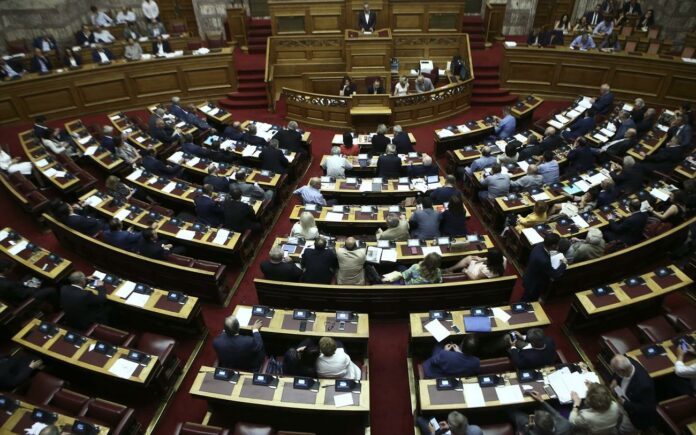By T. Tsiros
The Greek state can achieve a primary budget surplus of 3.56 percent of annual GDP – or 122 million euros more than the prescribed target in absolute terms – even without a scheduled reduction in social security spending, the leftist-rightist government’s “alternate scenario” maintains.
Both options, namely, implementing and not implementing the social security reduction measure were included in the 2019 draft budget, submitted to Parliament on Monday, with corresponding calculations made.
Under the “primary scenario”, the scheduled pension cuts are implemented in tandem with several countervailing or “positive measures” accompanying the looming austerity measure, which has already been legislated and is due to come on line as of Jan. 1, 2019.
Conversely, the “alternate scenario” avoids implementation of the pension cuts and the countervailing measures, sans a bevy of spending and tax break promises made by Greek PM Alexis Tsipras last month from the podium of a trade fair in Thessaloniki.
The figure, according to the finance ministry, will be achieved even if the Greek prime minister’s recent spending promises are implemented during the year, albeit with certain “modifications”.
Such “modifications” include bumping a scheduled reduction in the corporate tax rate to 2020, meaning that whatever lower rates will apply to profits for 2019, as well as budgeting 150 million euros for a rent subsidization program instead of 600 million euros foreseen.
Under the “primary scenario”, the primary budget surplus for 2018 is 3.8 percent of GDP, or 7.043 billion euros. The previous forecast of 6.881 billion euros emanated from the medium-term fiscal adjustment program, and also corresponds to 3.8 percent of GDP. The difference is due to a revision, upwards, in the economic growth forecast, from 2 percent to 2.1 percent.
Under memorandum criteria, the 2018 primary budget surplus is forecast to reach 3.74 of GDP, or 6.853 billion euros, up from 3.56 percent predicted in the medium-term program.
As such, an excess surplus of 0.24 percent, or 445 million euros, will arise.
For 2019, the primary budget surplus, using memorandum criteria, is forecast to reach 4.14 percent of GDP, or 7.876 billion euros – up from 3.96 percent or 7.517 billion euros in the medium-term program.
The “alternate scenario” that the poll-trailing Tsipras government wants to implement avoids slashing 2.065 billion euros from social security spending. This sum will be off-set by 1.73 billion euros in countervailing measures that will not be implemented.
Additionally, the overall collection from property taxes will be reduced by 263 million euros; and 229 million euros less from cuts in social security contributions.














